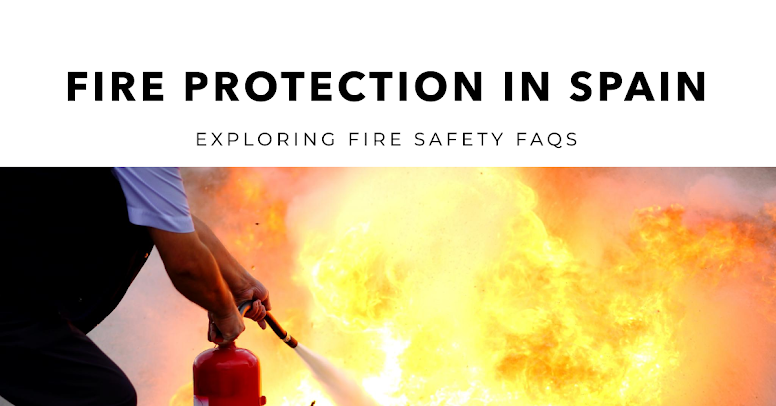Protecting Your Home: A Comprehensive Guide to Residential Fire Protection in Spain
Are you concerned about the safety of your home when it comes to fire hazards? Understanding the various fire protection systems available for residential properties is crucial for safeguarding your loved ones and your belongings. In this guide, we'll explore the essentials of residential fire protection in Spain, covering everything from smoke detectors to fire extinguishers and more.
The Importance of Fire Safety at Home
While Spanish fire safety regulations primarily focus on public facilities and workplaces, it's equally vital to ensure that residential properties are adequately protected against potential fire incidents. Your home is not only a place of comfort but also a sanctuary for your family and cherished possessions. Therefore, implementing effective fire protection measures is essential to mitigate risks and ensure everyone's safety.
Understanding Residential Fire Protection Systems
1. Fire Extinguishers
Every home should have at least one fire extinguisher readily available, ideally with a 13A 98BC rating. It's recommended to place extinguishers in key areas such as the kitchen and any workshops where electrical tools are used. Consider investing in a CO2 extinguisher for electrical fires, as it won't damage electrical components like ABC powder extinguishers might. Additionally, special F-type extinguishers are ideal for kitchen fires involving grease.
2. Fire Blankets
Fire blankets are invaluable tools for smothering small fires, particularly in the kitchen. These blankets work by isolating the fire from its oxygen source, effectively extinguishing it. Unlike extinguishers, fire blankets require no installation or maintenance, making them a convenient addition to your home's fire safety arsenal.
3. Autonomous Fire Detection
Autonomous fire detectors provide early warnings of potential fire incidents by detecting smoke and heat. Powered by batteries and equipped with built-in sirens, these detectors are ideal for areas like the kitchen, garage, and bedrooms. While they lack centralized monitoring, autonomous detectors offer reliable protection against fire hazards.
4. Carbon Monoxide Detection
Carbon monoxide (CO) detectors are essential for detecting potentially lethal gas leaks in areas such as the kitchen and boiler rooms. Similar to autonomous fire detectors, CO detectors are battery-powered and feature built-in sirens for immediate alerts in case of gas leaks.
Ensuring Compliance and Safety
While Spanish fire safety regulations may not explicitly require residential properties to adhere to the same standards as public buildings, prioritizing fire safety in your home is paramount. By implementing the aforementioned fire protection systems and adhering to best practices, you can significantly reduce the risk of fire-related incidents and protect your home and loved ones.
Remember, the safety of your family and property should always be a top priority. Don't compromise on fire safety—invest in the necessary equipment and measures to ensure peace of mind and a secure living environment for everyone.
In conclusion, while the focus of Spanish fire safety regulations may primarily be on public facilities, it's essential to prioritize residential fire protection. By understanding the available fire protection systems and taking proactive measures, you can create a safer home environment for you and your family. Let's not underestimate the importance of fire safety—protect what matters most.


Comments
Post a Comment